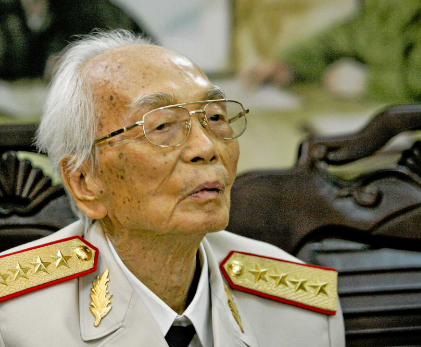Last Friday, the famous Vietnamese General, Vo Nguyen Giap died in a military hospital, in Hanoi, the Vietnamese capital, at the age of 102 years. Most people reading my piece today might not even know who the man was.
But he was one of the greatest military leaders of the 20th Century who lead the Vietnamese people to defeat two imperialist powers: French Imperialism at the battle of Dien Bien Phu in May 1954 and American Imperialism in the 1970s, leading to the re-unification of Vietnam. General Giap was among the great survivors of the communist revolutionaries who defeated colonialism in Indochina.
Giap was a teacher and journalist who earned a degree in law and political economy in 1937. He was to become a Marxist and with no formal military training but in joining the Communist Insurgency led by Ho Chi Minh, he built the army into a highly disciplined force able to achieve remarkable military victories.
Military victcories
The Vietnamese people’s struggle against colonialism and the American occupation cost the country over three million dead, but the heroism of that struggle defined the lives of activists for most of the 1960s and ’70s, with Vietnamese solidarity movements being built all over the world. General Giap had spoken of the Vietnamese war in 2005, that “no other wars for national liberation were as fierce or caused as many losses as this war”.
Vietnam’s heroism inspired the revolutionary struggle in many parts of the Third World, including those in Africa, but especially in Algeria, Guinea Bissau, Angola and Mozambique.
It is part of our neo-colonial baggage today, that the military teachings of General Giap might probably not be taught or even known in our military academies, given the subservience to the colonial powers, but General Giap taught the poor people of the world how to struggle for their independence and dignity.
I am on the eve of my first visit to Vietnam and it is a journey that I am looking forward to with great anticipation. It will be good to learn from the Vietnamese at first hand, how they found the will power to fight and defeat two imperialist powers and when peace returned they also began to fight the more difficult battle against underdevelopment.


